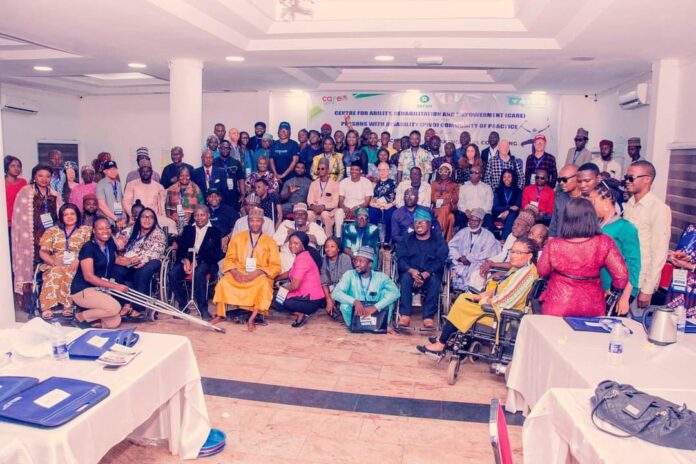Abuja, Nigeria – The Grand Cubana Hotel in Jabi, Abuja, was a hive of activity on June 27th and 28th, 2024, as stakeholders from across Nigeria gathered for a pivotal 2-day National Co-creation Stakeholders Convening. Themed “The National Disability Act Post-moratorium: Advancing Inclusion and Accessibility for Those Vulnerable and Outside the Margin,” the event marked a significant step forward in addressing the rights and inclusion of persons with disabilities in Nigeria.
Background and Significance
The Discrimination Against Persons with Disabilities (Prohibition) Act, 2019, widely known as The National Disability Act, was a milestone achievement after nearly two decades of advocacy. Enacted to protect the rights of persons with disabilities and promote their inclusion, the Act aligns with the United Nations Convention on the Rights of Persons with Disabilities (UNCRPD). Despite its promise, implementation has lagged, prompting calls for renewed action and revisions to meet current needs.
A Gathering of Minds
Hosted by the Centre for Ability Rehabilitation and Empowerment (CARE) in collaboration with the Voice Persons with Disabilities community of practice, the convening drew over 150 participants. Among them were Senior Special Assistants to governors on disability matters, civil society organizations, NGOs, implementing partners, and representatives from various government ministries, departments, and agencies.
Key Objectives and Discussions
The primary goals of the convening were to assess the progress of the Act’s implementation at the state level, identify challenges, and strategize for better inclusion and accessibility. Participants engaged in deep discussions on budget allocation, appointment processes, and the enforcement of penalties. They also focused on raising awareness among both duty bearers and right-holders about the Act’s provisions.
Challenges Highlighted
Participants recognized several critical issues:
- The term “integration” in Part One of the Act was seen as inadequate, suggesting a need to replace it with “inclusion” to ensure full accommodation of diverse needs.
- Inconsistent implementation across states, with only a few having established disability commissions.
- Lack of minimum accessibility standards.
- Persistent tokenism and insufficient human rights-based approaches.
- Poor communication and information dissemination within disability groups.
- Continuous discrimination in accessing services, including airline travel.
- Insufficient budget allocations for disability initiatives.
Resolutions and Recommendations
To address these challenges, the convening produced several key resolutions:
- Advocate for replacing “integration” with “inclusion” in the Act.
- Enhance collaboration to promote full inclusion at all levels.
- Intensify advocacy for the establishment and proper functioning of disability commissions.
- Bridge communication gaps using technology.
- Replicate similar convenings in other states to evaluate and improve implementation efforts.
- Strengthen partnerships between government, NGOs, and disability advocates.
State Commitments
State representatives committed to advancing the domestication and implementation of the National Disability Act in their respective regions. They emphasized the need for adherence to international standards, such as the IATA Protocol, and called for the deployment of Freedom of Information (FOI) requests to track and ensure budgetary allocations for disability initiatives.
Path Forward
The convening concluded with a strong commitment to implement the outlined recommendations and foster a collaborative effort among government agencies, civil society organizations, and international partners. This unified approach aims to achieve full inclusion and accessibility for all persons with disabilities in Nigeria.
Conclusion
The 2-day National Co-creation Stakeholders Convening in Abuja was not just a discussion platform but a call to action. The resolutions and commitments made signify a renewed drive towards ensuring that the National Disability Act fulfills its promise of protecting and empowering persons with disabilities, thereby creating a more inclusive and equitable society.


